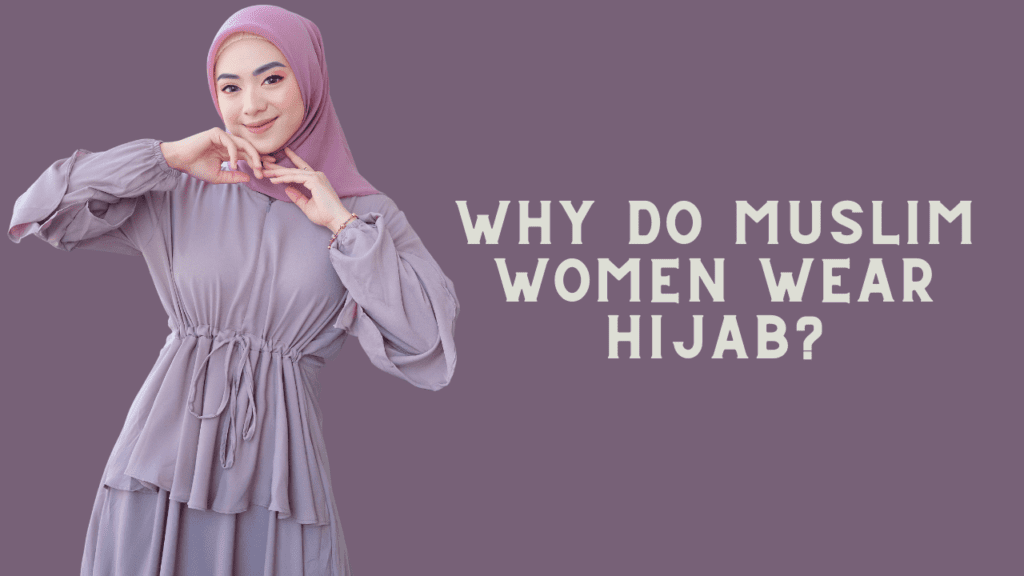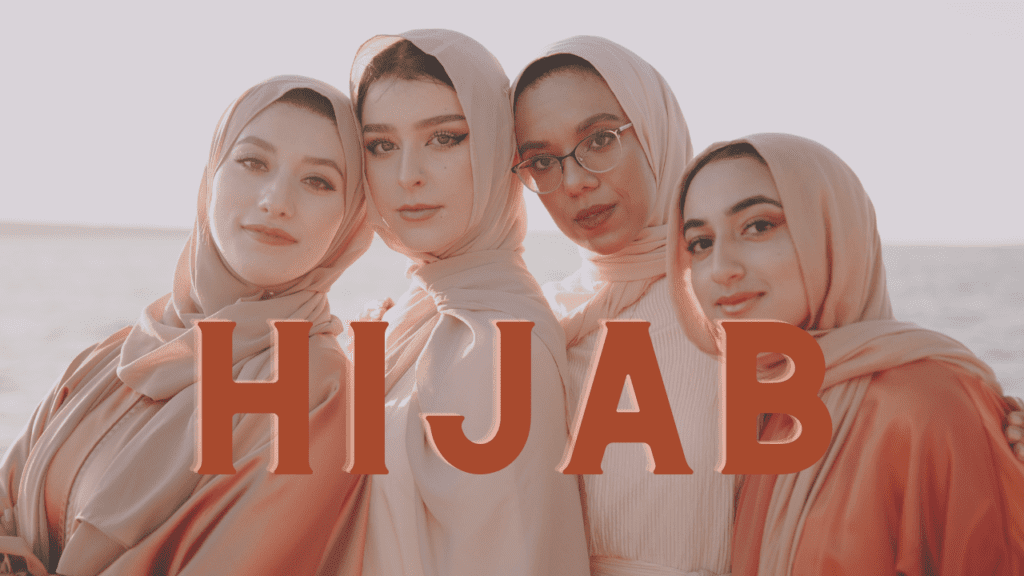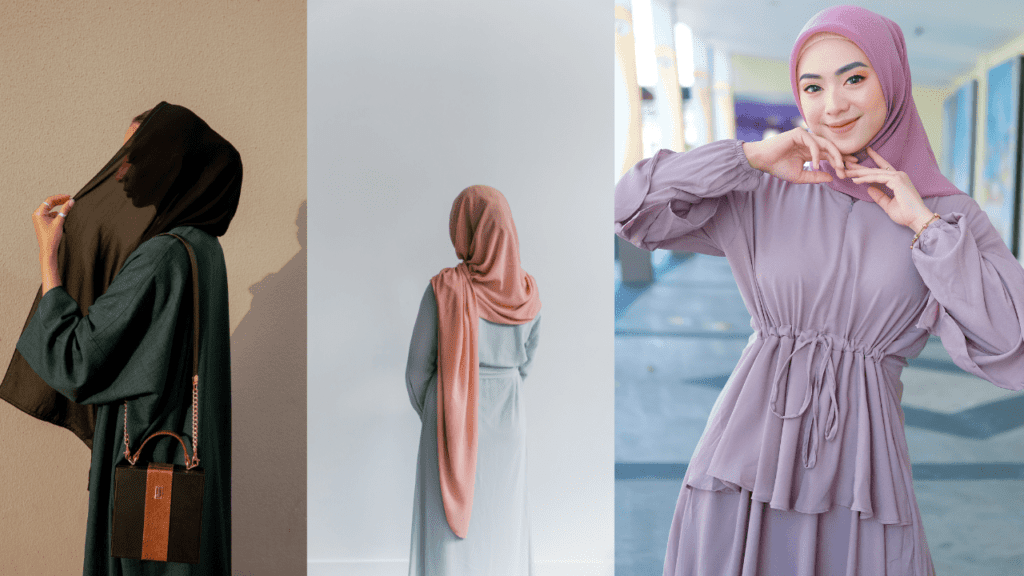Women Wear Hijab, In today’s diverse world, one cannot help but be intrigued by the distinctive practices and attire of different cultures. The hijab, a headscarf predominantly worn by Muslim women, is an iconic symbol of modesty and faith. But what lies beneath this veil, and why do Muslim women choose to wear it? In this article, we delve into the multifaceted reasons behind the adoption of the hijab, its cultural and religious significance, and address common misconceptions associated with it.

Table of Contents
Introduction Women Wear Hijab
Understanding the Hijab
The hijab, a traditional Islamic garment, is a headscarf that covers the hair and neck, leaving the face exposed. It represents much more than just a piece of cloth; it is an essential aspect of Muslim women’s lives, steeped in tradition and faith.
Historical Roots of the Women Wear Hijab
Ancient Practices
To grasp the origin of the hijab, one must delve into history. Pre-Islamic Arabia saw a variety of veiling practices among women, reflecting not only modesty but also societal status.
Quranic Influence Women Wear Hijab
The Quran, the holy book of Islam, emphasizes modesty and the concept of covering one’s adornments. It is the cornerstone of the hijab’s religious significance.
The Role of Modesty
Preserving Dignity
One of the core motivations behind the hijab is to preserve the dignity and honor of Muslim women by guarding them against objectification.
Spiritual Connection
The hijab is not merely a physical covering but also serves as a spiritual shield, connecting Muslim Women Wear Hijab with their faith.

Cultural Significance
Diversity in Dress
The hijab varies in style and color across different Muslim-majority regions, reflecting the rich cultural diversity within the Muslim community.
Identity and Empowerment
For many Muslim Women Wear Hijab is a form of empowerment and a means of expressing their identity and faith.
Common Misconceptions
Forced to Women Wear Hijab
A prevalent misconception is that Muslim women are compelled to wear the hijab. We uncover the truth behind this belief.
Lack of Freedom
Another myth suggests that wearing the hijab restricts freedom. We explore how many women feel liberated by their choice.
Modern Challenges
Facing Discrimination
Muslim women who choose to wear the hijab often face discrimination. We discuss the challenges they encounter in various parts of the world.
Empowering Through Choice
Despite the obstacles, many Muslim women embrace the hijab as a choice and a symbol of resilience.
Is Women Wear Hijab compulsory in Islam?
Women Wear Hijab,Whether or not the hijab is required in Islam depends on one’s interpretation, which varies between Islamic scholars and schools of thought. There isn’t a single, accepted response among all. The following are some crucial points to consider:
Islamic Beliefs and Modesty: Islam places a high value on modesty. Men and women are encouraged to behave and dress modestly in the Quran. Although the Quran stresses that women should cover their jewellery and dress modestly, it does not specifically refer to the word “hijab” to refer to a particular type of clothing.
Interpretation: There are differences in opinions over what modest attire is and whether or not the hijab is required. Some academics contend that Muslim women are required to cover their heads and bodies with the hijab, which usually covers the hands and face. Some people think it’s merely a suggested act of worship rather than a mandate. Some even maintain that it is a question of preference.
Cultural and Regional Variation: There are cultural and regional aspects that impact the hijab-wearing practise. It might be a social or legal duty in some Muslim-majority nations, but it might also be a matter of personal preference in others. The way the hijab is worn is greatly influenced by cultural conventions and societal expectations.
Individual Decision: Wearing the hijab is a common way for Muslim women to display their faith, identity, and dedication to modesty. It’s a very personal and spiritual choice for them.
Religious Authority: Depending on whatever religious authority a person or group adheres to, there may be differences in how Islamic teachings are interpreted and whether or not the hijab is required. Divergent views on this issue may be held by various Islamic scholars and religious authorities.
In summary, different people and cultures have different opinions about whether or not the hijab is required in Islam. It is frequently seen as a question of individual choice, cultural context, and subjective interpretation. The significance of modesty and the necessity of wearing in a way that protects against objectification and maintains dignity, as prescribed by the Quran, are constants.
Conclusion
In conclusion, the Women Wear Hijab is a deeply rooted tradition in the lives of Muslim women, with a profound significance that transcends mere attire. It embodies modesty, identity, and a connection with faith. Understanding the reasons behind wearing the hijab is crucial to dispelling myths and promoting inclusivity and diversity.
FAQs
- Is wearing the hijab a religious obligation for all Muslim women? No, wearing the hijab is a matter of personal choice and interpretation of Islamic teachings. It is not obligatory for all Muslim women.
- What are the different styles of hijab worn by Muslim women? The styles of hijab can vary greatly, including the traditional headscarf, the niqab (which covers the face), and the burqa (which covers the entire body).
- Do non-Muslims ever choose to wear the hijab? Yes, some non-Muslim individuals wear the hijab as a sign of solidarity or to better understand the experiences of Muslim women.
- Is the hijab only worn by women? While the hijab is most commonly associated with women, men in some Muslim-majority countries also wear head coverings as a form of modesty.
- Is there a particular age when Muslim girls start wearing the hijab? The age at which Muslim girls start wearing the hijab can vary, but it is often a personal decision made with guidance from family and religious leaders.

About Feature Fashion
- Follow us for similar information, We will give you even better information related to clothes and fashion.We will give you some special information about fashion. Hope you will like our given information. like, Women Wear Hijab mention in this article.feature fashion will give you daily updates.Follow featuresfashion.com for more information.

